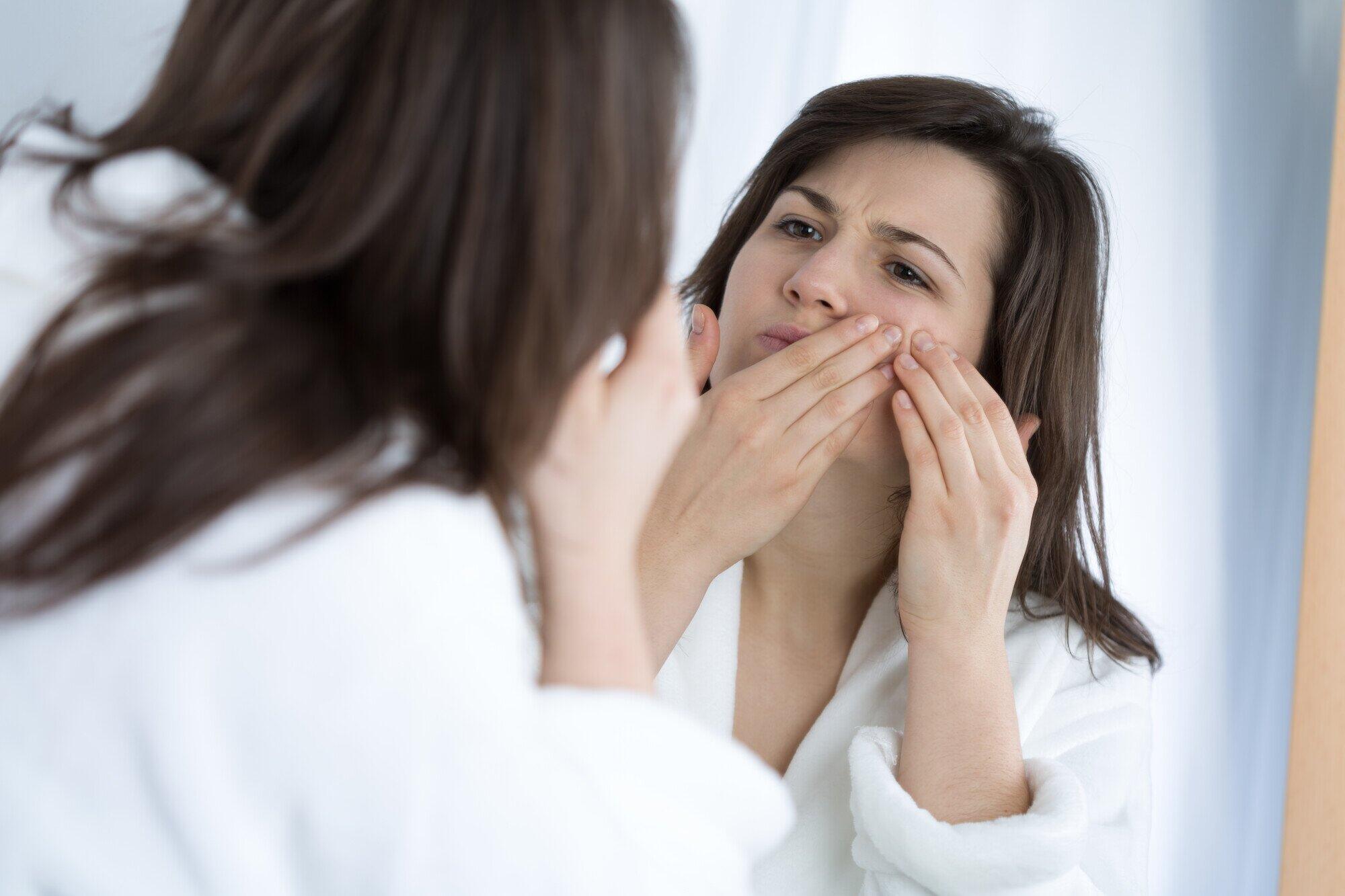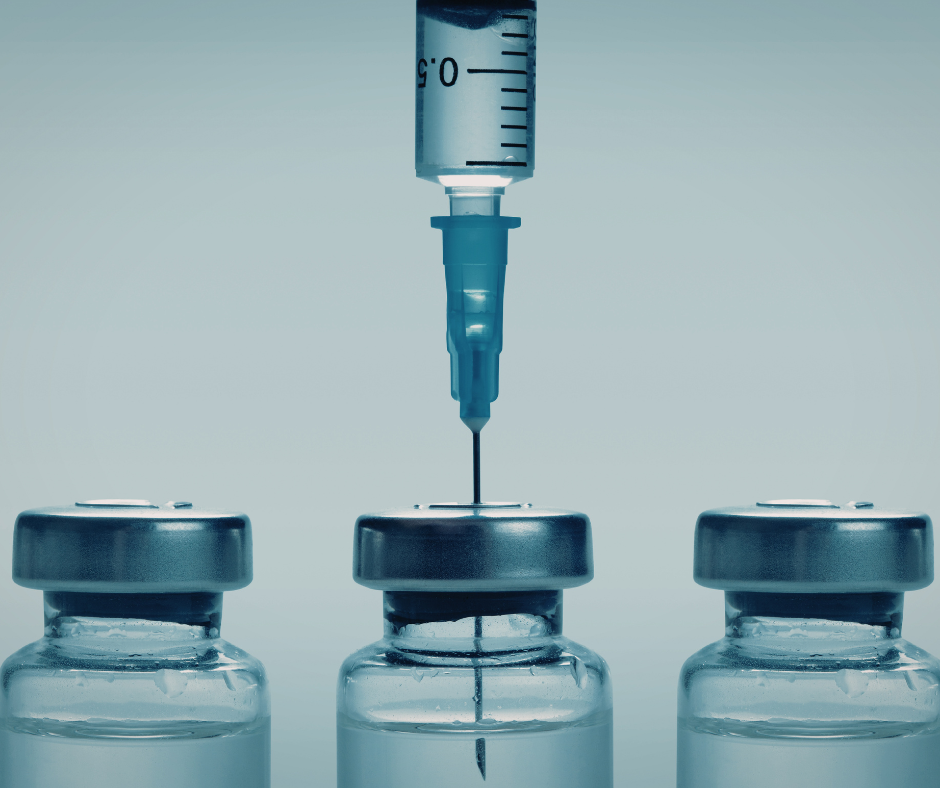Frustrating breakouts right before a big event? You’re not alone. Hormonal acne plagues millions of women, with statistics showing that nearly half of women in their 20s and a quarter of women in their 40s experience this struggle.
While traditional acne treatments like benzoyl peroxide can be effective, many seek alternative solutions. Enter vitamins for hormonal acne.
But can something that simple truly be the key to clearing stubborn breakouts? Let’s explore how the right vitamins can help support your skin.
What Causes Hormonal Acne?
Hormonal acne is often triggered by fluctuations in hormone levels, particularly androgens like testosterone. These hormones stimulate the sebaceous glands to produce excess oil, leading to clogged pores and inflammation. As a result, you may notice those dreaded breakouts predominantly on your chin, jawline, and cheeks.
Additionally, factors such as stress, menstrual cycles, menopause, pregnancy, conditions like PCOS, or certain medications can further exacerbate hormonal imbalances and contribute to the development of acne. Hormonal acne is more common in women, but it also occurs in men.
What Does Hormonal Acne Look Like?
Hormonal acne often presents as deep cysts or nodules beneath the skin’s surface. These painful bumps are often red or inflamed and may not come to a head like traditional pimples. However, it can also appear as the following:
- Whiteheads
- Blackheads
- Papules
- Pustules
Hormonal acne tends to be persistent and recurring. Breakouts typically occur around the same time each month for many individuals.
Can Vitamins Help Treat Hormonal Acne?
There are many treatments for acne on the market. However, not every solution is the right one. Vitamins get a lot of hype, but can they really help with hormonal acne?
There is some anecdotal evidence that certain vitamins may help treat hormonal acne. However, they should not be used as a standalone treatment and should always be used under the guidance of a healthcare professional.
Essential Vitamins for Hormonal Acne
There is evidence that vitamins can help with hormonal acne. Knowing which vitamins to use is a different story, though. Let’s explore a few that may help.
Vitamin A
Vitamin A plays a crucial role in skin health, making it a valuable asset in the fight against hormonal acne. This essential vitamin helps regulate oil production, prevent clogged pores, and promote skin cell turnover, all of which can contribute to clearer skin.
Vitamin A also has anti-inflammatory properties that can help reduce redness and swelling associated with acne breakouts. Incorporating Vitamin A into your skincare routine or diet through foods like carrots, sweet potatoes, and leafy greens may improve your hormonal acne.
Vitamin B Complex
Vitamin B Complex is crucial in managing hormonal acne by regulating skin cell turnover and reducing inflammation. This group of vitamins includes B1, B2, B3, B5, B6, B7, B9, and B12 which work together to support overall skin health.
Specifically, Vitamin B5 helps control sebum production. Vitamin B6 aids in hormone regulation.
Including foods rich in Vitamin B, like whole grains, nuts, seeds, and leafy greens, can promote clear and healthy skin from within. Supplementing with a Vitamin B Complex can benefit those struggling with hormonal acne outbreaks.
Vitamin C
Vitamin C is a powerhouse nutrient known for its antioxidant properties. This essential vitamin plays a crucial role in skin health by promoting collagen production, which helps maintain the skin’s firmness and elasticity.
Additionally, Vitamin C can help reduce inflammation and redness associated with hormonal acne, making it a popular choice for skincare enthusiasts looking to combat breakouts. Incorporating Vitamin C-rich foods or serums into your daily routine can potentially improve the overall appearance of your skin and contribute to effectively managing hormonal acne.
Vitamin D
Vitamin D is a crucial nutrient that plays a significant role in maintaining healthy skin. Known as the “sunshine vitamin,” it can help regulate hormone levels, including those responsible for acne flare-ups. However, despite the many benefits, around 35% of people in the US have a Vitamin D deficiency.
This vitamin supports overall skin health, helps reduce inflammation, and promotes cell growth and repair. Ensuring an adequate intake of Vitamin D, either through sunlight exposure or supplements, can potentially aid in managing hormonal acne effectively.
Vitamin E
Vitamin E is a powerful antioxidant. It helps to protect the skin from free radicals and UV radiation, which can worsen hormonal acne. Incorporating Vitamin E into your skincare routine can promote healing and reduce inflammation, leading to clearer skin.
You can boost your Vitamin E intake through dietary sources like almonds, spinach, and sunflower seeds. Applying Vitamin E topically in serums or creams can provide targeted nourishment for acne-prone skin.
Alternative Methods and Supplements for Hormonal Acne Management
Dealing with hormonal acne can be frustrating. Fortunately, some alternative methods and supplements may help manage it.
Zinc Supplements
Zinc is an essential mineral that regulates hormones and is beneficial in managing acne. Studies have shown that zinc supplements can reduce sebum production, decrease inflammation, and improve overall skin health.
Probiotics
There is evidence that suggests a link between gut health and skin health. Probiotics are beneficial bacteria that help balance the gut microbiome and may improve hormonal acne by reducing inflammation and balancing hormones.
Tea Tree Oil
Tea tree oil has antimicrobial properties that can help kill bacteria on the skin and reduce inflammation. It can be applied topically as a spot treatment or added to facial cleansers or moisturizers.
Evening Primrose Oil
Evening primrose oil contains gamma-linolenic acid (GLA), an omega-6 fatty acid that has anti-inflammatory effects. Taking evening primrose oil supplements may help reduce inflammation and improve hormonal imbalances contributing to acne.
Chasteberry Supplements
Chasteberry, also known as Vitex agnus-castus, is an herb traditionally used to regulate hormones in women. It may help manage hormonal acne by balancing hormone levels and reducing inflammation.
Dietary Changes
Making dietary changes can also be beneficial for managing hormonal acne. Avoiding processed foods, sugary snacks, and dairy products may help reduce inflammation and balance hormones. Instead, focus on eating whole foods rich in antioxidants and healthy fats.
How to Find the Right Skincare Plan for You
Ultimately, everyone’s skin is unique, so what works for one person may not work for another. Sometimes, finding the right skincare plan for hormonal acne is a process of trial and error.
Consult with a dermatologist or healthcare provider to determine the best course of action for your specific needs. They can help you identify the root cause of your hormonal acne and recommend appropriate treatments, including vitamins and supplements.
Experimenting with different vitamins, alternative methods, dietary changes, and topical treatments can help you find what works best for your skin. However, before making any of these changes, you should seek the guidance of a medical professional.
Stay patient and proactive in your approach to managing hormonal acne. Consistency is key. Give any new regimen time to see results before making changes.
How to Incorporate Vitamins Into Your Skincare Routine
How do you incorporate vitamins into your skincare routine? You can do several things, and it’s easier than you may think.
Choose a Vitamin-Rich Moisturizer or Serum
One of the easiest ways to incorporate vitamins into your skincare routine is using a moisturizer or serum packed with vitamins. Look for products containing ingredients like vitamin C, E, and A (also known as retinol). These vitamins have been shown to improve skin texture, brighten skin tone, and reduce signs of aging.
Add a Vitamin C Serum to Your Morning Routine
Vitamin C is a powerful antioxidant that can help protect your skin from environmental damage and promote collagen production. It also has brightening properties, making it great for those looking to even out their skin tone. Consider adding a vitamin C serum to your morning routine after cleansing and before moisturizing.
Use a Retinol Product at Night
Retinol, a form of vitamin A, is known for its anti-aging benefits. It can help reduce fine lines and wrinkles and improve skin texture and tone. However, it can make your skin more sensitive to the sun, so it’s best used at night as part of your bedtime routine.
Take Supplements
In addition to incorporating vitamins into your skincare products, you can also take supplements to boost your vitamin intake. Look for supplements containing vitamins C, E, and A and other beneficial ingredients like biotin and collagen.
Eat a Healthy Diet
Fruits and vegetables are rich in vitamins and antioxidants that can help promote healthy skin. Incorporate tomatoes, kale, berries, and avocados to boost your vitamin intake.
Consider a Multivitamin Mask
For an extra dose of vitamins, consider using a multivitamin mask once or twice a week. These masks contain a blend of vitamins that can help nourish and improve the overall health of your skin.
End Hormonal Breakouts With the Right Plan
From Vitamin A to E, each plays a unique role in supporting skin health and managing hormonal imbalances that contribute to acne breakouts. Are you ready to find the right vitamins for hormonal acne?
At Evolve, we’re on a mission to help you experience a happier, healthier, and more productive life. We believe there is a simple and natural way to help you achieve the smooth and glowing skin you want. Get started today by filling out our intake form.






